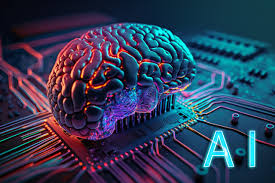Artificial Intelligence (AI) refers to the simulation of human intelligence in machines programmed to think, learn, and solve problems. These systems can perform tasks such as speech recognition, decision-making, and visual perception—functions typically requiring human intelligence.
- Narrow AI: Performs specific tasks (e.g., Siri, Google Translate).
- General AI: Has human-like cognitive abilities across various domains (still theoretical).
- Superintelligent AI: Surpasses human intelligence (a concept for the future).
- Healthcare: AI assists in diagnosing diseases, personalizing treatments, and managing patient data.
- Finance: Used in fraud detection, algorithmic trading, and customer service.
- Education: Enables personalized learning platforms and smart content generation.
- Transportation: Powers self-driving vehicles and smart traffic systems.
- Marketing: Enhances customer targeting and automates digital campaigns.
- Efficiency: Automates repetitive tasks, saving time and resources.
- Accuracy: Reduces human error in data-intensive operations.
- Innovation: Opens new possibilities in science, medicine, and business.
- Job Displacement: Automation could replace many traditional roles.
- Ethical Concerns: Includes bias in algorithms and misuse in surveillance.
- Data Privacy: AI systems rely heavily on large amounts of personal data.
AI will continue to evolve, becoming more integrated into daily life. Responsible development, ethical frameworks, and inclusive policies will be crucial in harnessing its potential for good.
Conclusion:
Artificial Intelligence is a game-changer—revolutionizing industries, reshaping society, and redefining what’s possible. As it advances, the key will be balancing innovation with responsibility.
Ask ChatGPT
